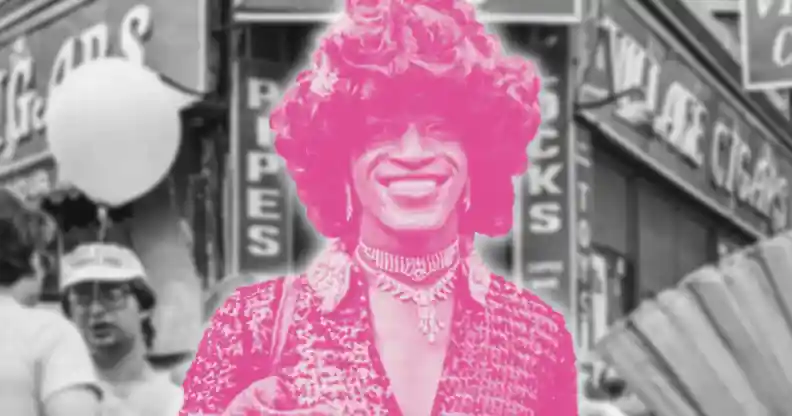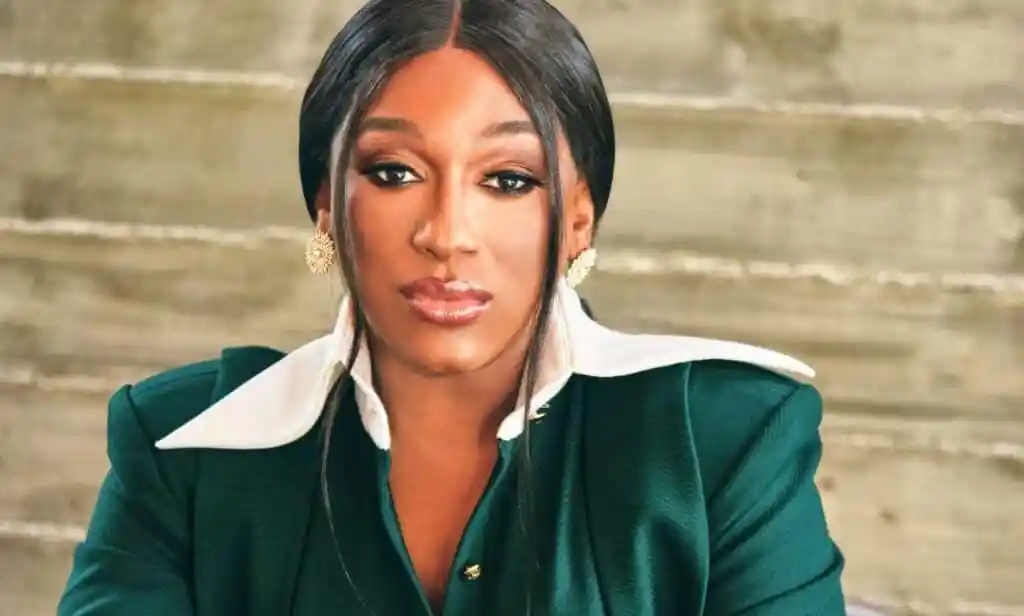On Marsha P Johnson’s birthday, remember her true legacy of Black trans joy in resistance

Marsha P Johnson is a “roadmap” on “how one can be an activist” and be their authentic self. (Getty)
Marsha P Johnson is a "roadmap" on "how one can be an activist" and be their authentic self. (Getty)
On what would have been Marsha P Johnson’s 77th birthday, the founder of the institute that bears her name discusses her powerful, often misunderstood legacy.
Marsha P Johnson, born 24 August, 1945, holds a special place within the LGBTQ+ community for her larger-than-life spirit and trans rights activism. She was instrumental in the 1969 Stonewall riots which kickstarted the modern fight for LGBTQ+ rights in the US.
Along with Sylvia Rivera, who was also a key part of Stonewall, she established their landmark STAR organisation in 1970 to help homeless trans youth and other marginalised groups in New York City. She also was one of the founding members of the Gay Liberation Front.
Elle Moxley is founder and executive director of the Marsha P Johnson Institute. She say that Johnson has been “claimed by many people” over the years, but ultimately she was person who “belonged to herself… no matter how many people put a saint narrative or a heroic figure around her”.
“Marsha lived homeless for a majority of her life, faced the rejection of her community and was someone who was bigger-than-life,” Moxley told PinkNews.
Despite this, Johnson worked hard to create change during her short life (she was found dead in the Hudson River in 1992, aged 46).
“I think having that kind of impact that she had while she was alive is why we are still saying her name,” Moxley reflected.
“Marsha has been a roadmap to how one can be an activist but also how one can still belong to themselves.
“And there’s a community of Black trans people globally who need to be able to say: ‘Someone else took the journey that I’m currently on, and I have a roadmap’.
View this post on Instagram
The Marsha P Johnson Institute was founded in 2019 to defend and protect Black trans people, in response to the murders of Black trans women. It is abolitionist, seeking “a world free of war, police brutality, and political corruption”. It works to eradicate systemic, community and physical violence, while also uplifting, supporting and empowering the community.
Moxley describes how Marsha P Johnson spent just as much time “in and out of jail and courtrooms as she did at protests”.
She says this part of Johnson’s life is not as widely celebrated, mirroring the experience of Black trans women today.
“We have a lot of work to reconcile around race, class and gender globally,” Moxley says. “The more we can understand the impacts of colonisation globally, and work to provide reparations to all those impacted by bondage and enslavement, we’ll have a different reality.”
Moxley adds that Johnson’s legacy means the the institute is not just fighting “on behalf” of the community, but for themselves, as it is led by Black trans people.
In many ways, Moxley says they are fighting for their ability to live a “fulfilled life”, much as Johnson did.

Elle Moxley, founder and executive director of the Marsha P Johnson Institute, says celebrating Johnson’s birthday honours all those continuing her legacy today. (Provided)
She says it’s always an honour to mark Johnson’s birthday because she gave herself “permission to be visible, outspoken and honest”.
“We continue to celebrate Black joy because so much of what exists today around the LGBTQ+ community would not be possible had Black joy not been part of the resistance,” Moxley says.
“We’re honoured to be able to celebrate and say ‘happy birthday’ to Marsha, because it gives us the ability to say happy birthday to so many more people, and that’s the bigger picture about Marsha’s legacy and the legacy of Black trans people.
“They were alive. We are alive.”
View this post on Instagram
Moxley adds it is important to embody Marsha’s spirit and legacy year long as society “only expects that Black trans people are supposed to die”.
Sadly, violent deaths within the community are all too frequent and such occurrences have only increased in recent years as an ‘epidemic of violence’ sweeps the nation.
At least 25 trans, non-binary or gender non-conforming people have died by violent means in 2022, according to the Human Rights Campaign. The majority of these were Black trans women.
“We do not know how to honour Black trans people while we’re alive,” Moxley says. “That’s something we wrestle with every single day at the institute.
“What I’m sure many Black trans advocates across the world wrestle with is: I do this on behalf of my desire to be alive and subsequently by default of that, all these people get to benefit from my advocacy – but they do not know how to honour me.
“They do not know how to respect me and how to have grace with me when I’ve perhaps had a bad day or made a bad decision.”

